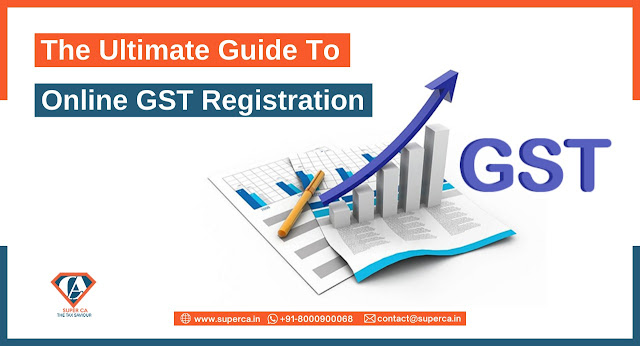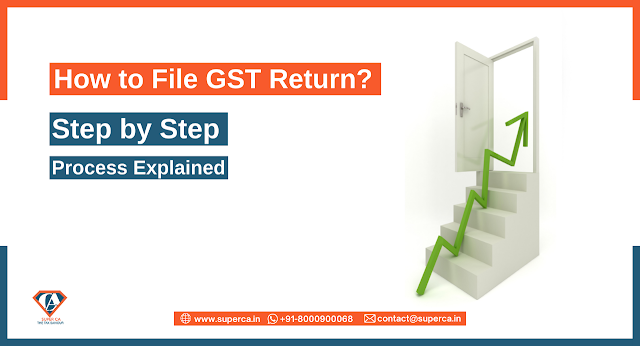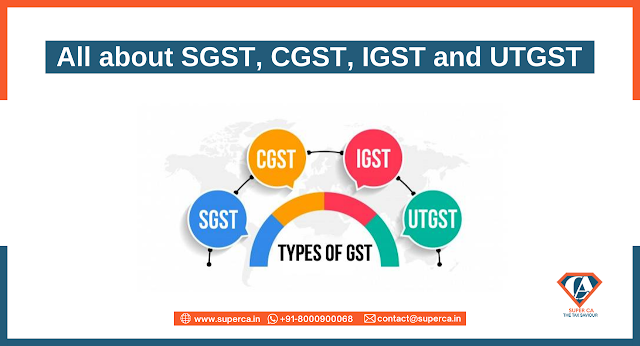The Ultimate Guide To Online GST Registration
According to the rules, every person (including company, LLP etc) has to register under GST if the total turnover crosses Rs.20 lakh (Rs 10 lakhs for special category states present in hill states and North-Eastern states). Hence, if your turnover is more than 20 lakh or is going to be more than 20 lakh, then you should go for online GST registration.
The registration process is completely online, hence no manual intervention or physical paper submissions is required. The online process is as simple as it may sound. It is normally completed within 4-6 working days and the supplier is allotted a 15-digit GSTIN (GST identification number) and a certificate of registration by the GST department. If the organizations fulfilling the eligibility criteria carry on business without registering with GST, it will be an offence under GST and heavy penalties will apply.
GST Registration Fee
For GST registration in India, there is no government fee. Anyone can get the GST registration free of cost. However, since GST registration involves some technical aspects, the professionals do charge some professional fees for the same.
Benefits of Online GST registration
- Lesser compliance as compared to the previous Indirect tax regime.
- Input tax credit can be claimed or transferred by the registered individuals
- Registered persons can make Interstate sales without any restrictions.
- Taxpayer will be legally recognized as a supplier of goods or services
- Seamless flow of Input Tax Credit from suppliers to recipients at the national level.
Documents required
The following documents are required while going for online GST registration -
➢
PAN of the Applicant
➢
Aadhaar card
➢
Proof of business registration or Incorporation certificate
➢
Identity and Address proof of Promoters/Director with Photographs
➢
Address proof of the place of business
➢
Bank Account statement/Canceled cheque
➢
Digital Signature
➢ Letter of Authorization/Board Resolution for Authorized Signatory
Exemptions
The following people and entities are exempt from getting online GST registration:
- Businesses that manufacture supplies that come under reverse charge.
- Activities that do not come under the supply of goods or services. Examples of such activities are the sale of a building or land, funeral services, and services provided by an employee.
- Businesses that make non-GST/ non-taxable supplies. Examples are aviation turbine fuel, electricity, natural gas, high-speed diesel, and petrol.
- Businesses that make exempt/ nil-rated supplies.
- Businesses that fall under the threshold exemption limit.
- Agriculturalists.
Types of GST
As per the law, the central government will collect CGST, SGST or IGST depending upon whether the transaction is intrastate or interstate
Central Goods and Services Tax (CGST)
CGST is charged on the intrastate supply of goods and services by the central government and is governed by the CGST Act.
The CGST is collected along with SGST. Both
the Central and State governments collect the taxes and combine their levies
with an appropriation proportion between them
State Goods and Services Tax (SGST)
As we discussed above on intra-state supply CGST will also be applicable but CGST will be controlled by the Central Government. SGST is the tax imposed on Intra-state supplies of goods and services which is collected by the State Government and will be governed by the SGST Act.
Union Territory Goods and Services Tax
(UTGST)
UTGST is the equivalent to SGST which is levied on the supply of goods/services in the Union Territories (UTs) of India. The UTGST is applicable to the supply of goods and/or services in Union Territories like Andaman and Nicobar Islands, Chandigarh, Daman Diu, Dadra, Nagar Haveli, and Lakshadweep.
Integrated Goods and Services Tax (IGST)
IGST is levied on all inter-state supplies of goods and services. It is also applicable to the imports and exports of goods and services, and to supply activities related to SEZs or Special Economic Zones. In the case of interstate tax collection, instead of separately charging taxes for the Center and the State, the Government collects a single IGST, which is later divided equally.
Cancellation of GST registration
It is mandatory for all registered taxpayers to file all GST returns on time. Failing to do so will make you liable for late fees and penalties. To get rid of all these things, one can opt for the cancellation of your GST registration. The registration can be cancelled by filing an application on the GST Portal citing the appropriate reason, however; you may have to visit your jurisdictional officer. You can opt for cancellation in a case when the turnover is below the minimum limit, Discontinuation of business, Transfer in the ownership status etc.





Comments
Post a Comment